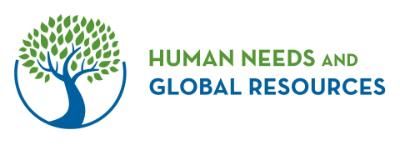Since 2013, the John Stott Endowment has enabled the Human Needs and Global Resources Program to broaden its impact on and off campus by supporting new Stott initiatives. All Wheaton College faculty are welcome to become involved with these programs that encourage faculty development and support Program partner relationships. These include Grants: funding faculty research and creative projects worldwide on central Program themes; Leave: supporting extended faculty engagement with critical human needs in the Majority World; Fellows: developing collaborative scholar-practitioner initiatives that connect faculty cohorts and Program partners; and Scholars: inviting international leaders for significant, sustained interactions with the campus and surrounding community. The Stott Endowment also provides significant student scholarships.
Stott Faculty Research Grants
The John Stott Faculty Research Grants in Human Needs and Global Resources exist to support faculty research and creative projects on core themes of poverty/wealth, injustice, violence/peace, human dignity, environmental impacts of human activities, and flourishing of the earth and its inhabitants. This program prioritizes projects conducted on these themes in Asia, Africa, Latin America/Caribbean, and the Middle East; however, compelling proposals that address the core themes in other regions, or about circumstances in the focus regions that do not involve travel, are also permitted.
Application Information
Applications are due by October 3, 2024.
Applicants for this grant may also simultaneously apply for Stott Faculty Study/Research Leave funding (see below).
2016-17
- Melissa Harkrider (History), ᏚᏳᎪᏛᎢ (Du-yu-dv-i): Living the Right Way—the Gospel and Cherokee Hymnody in Nineteenth Century America
- Christine Kepner (Spanish), Hispanic Cinema: Teaching for Justice and Mercy
- Shawn Okpebholo (Music), An Album of Negro Spirituals, Slave Songs, and Folk Hymns
- Amy Reynolds (Sociology), Economic Advocacy and the Global South
- Gregory Schreck (Art/Photography), Genesis Portrait Photography Project in Guatemala
- Christa Tooley (Anthropology), Urban Scots Respond to Brexit
2017-18
- George Kalantzis (Bible and Theological Studies),Welcoming the Stranger: Developing a "Theology of Refugees" amidst the Crisis in Greece
- John McConnell (Psychology), A Culturally Sensitive Needs Assessment of Social Justice, Peace, and Reconciliation for Native Hawaiians
- Nestor Quiroa (Modern and Classical Languages), Maya Testimonial Literature in Post-Conflict Guatemala: Narratives of a Past and a Peaceful Present
- Amy Reynolds (Sociology), International Development Dialogues
- David VanDyke (Psychology), Needs assessment and development of a Central and Eastern European Post-MA MFT Certificate Program
2018-19
- Sharenda Barlar and Susan Dunn-Hensley (Modern and Classical Languages/English), Return of the Pilgrim: Restoring Sacred Networks in Spain and the British Isles
- Christine Jeske (Anthropology), Voluntary Downward Class Mobility in South Africa
- Joonhee Park (Communications), Forgiven/Forgotten: Rwanda Reconciliation Center Media Installation
- Nestor Quiroa (Spanish), Maya Testimonial Literature in Post-Conflict Guatemala: Creating 'Mayaness' in a Pluri-religious Modern Society
- Gilles Tagne (Geology), Comprehensive Assessment of Improved and Unimproved Drinking Water Sources in Urban and Rural Sierra Leone, West Africa
- John Trotter (Conservatory of Music), Majority World Ensemble Leadership Research
2019-20
- James Huff (Human Needs and Global Resources), Formation for transformation: Latin American Christian Leaders in comparative perspective
- Karen Johnson (History), John Perkins, Race, and Reconciliation
- Muhia Karianjahi (HoneyRock), Christian Camping in the Global South: Models from Christian Camping International (CCI) Regional Networks in Africa, India, Central and South America
- Cherith Lundin (Art), Production and Creation: Exploring processes of making and knowing from Oaxaca to Chicago
- Carlos Sosa (Bible and Theological Studies), Latin America and Latino and Latina New Testament Hermeneutics
- Christa Tooley (Urban Studies), Production and Creation: Exploring processes of making and knowing from Oaxaca to Chicago
2020-21
- Kathryn Alexander (Politics and International Relations), Middle Eastern Soft Power and the Politics of Islamic Practice in Italy
- Karen Johnson (History), Wisdom from History: Leaning About and From Christian Interracial Movements in America’s Racial Past
2021-22
- Thomas Boehm (Education), Disability Development in International Contexts
- Christine Jeske (Sociology & Anthropology), Racial Justice Identifying White Exemplars
- Timothy Klingler (Modern and Classical Languages), Developing/Expanding MCL/HNGR/GPS/Aequitas Programs in Mexico/Latin/South America
- Jennifer McNutt (Biblical and Theological Studies), Exploring How French Bibles were Shaped by and for Early Refugee Crisis up until the Edict of Toleration
- Tim Taylor (Business and Economics), Teaching and Development: Exploring Non-Western Approaches to Development in Bhutan
2022-23
- Alex Haskins (Political Science and International Relations), An Appeal to the World: Universalism, Particularism, and Domination in the Political Thought of Montesquieu, Wei Yuan, and Du Bois
- Christine Jeske (Sociology & Anthropology), The 9%, What Motivates White Christians who Are Dedicated to Addressing Racial Justice
- Karen Johnson (History), Wisdom from History: How Christians have Engaged Race in the Past and What We Can Learn from Them
- Muhia Karianjahi (MML), Christian Camping in the Global South: Models from India
Charles Liu (Psychology), Fulbright Seed Funding: Cultural Beliefs about Mental Health in Thailand - Joonhee Park (Communications), The Right to Forget and the Duty to Remember
- John Trotter (Conservatory), Ensemble Leadership in Cultural Context
2023-24
- Johann Buis (Conservatory), Finding a Musical Titanic in Africa
- Theon Hill (Communications), Promoting Racial Justice via Black Entrepreneurship: A Communication Perspective
- Charles Liu (Psychology), Cultural Beliefs About Mental Illness, Stigma, and Help-seeking in Urban and Rural Thailand
- Cherith Lundin (Art), Learning through Exchange: Fortifying Community Art Collaboration between Wheaton and Oaxaca
- Kaye Lee Patton (Art), Learning through Exchange: Fortifying Ongoing Community Art Collaboration between Wheaton and Oaxaca

/prod02/channel_1/media/hngr/MIHNGR-2024-(1).jpg)